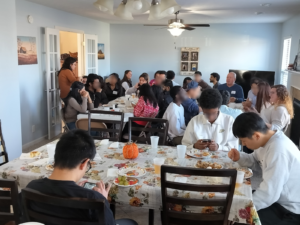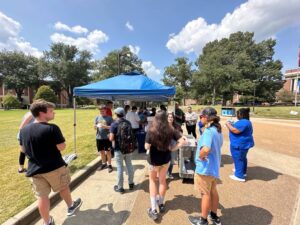If you are seeking to minister to students on your local college campus, one of your first steps should be to spend some time seeking to understand the types of students on your campus and what their unique life rhythms and needs are. No two students are the same, but often the ebb and flow of campus life on a specific campus can give you some important clues into ways that you can best structure ministry to students on your local campus.
There are lots of nuances about your campus that you will learn as you continue to minister to its students, but let’s start by breaking down campuses into three broad categories and some key things you will want to keep in mind for each one.
1) Community College Campus
As education costs continue to rise, spending time at a local community college is increasingly becoming an attractive option for many of today’s students. You will want to be aware of a few things that make community colleges unique.
• Campus Life options are often limited so having a presence on campus will really make your ministry stand out.
• Degree programs are often designed to only be 2 years, so the length of time students may stay at these colleges is shorter than other institutions.
• Many of the unique aspects of commuter campuses below also apply.
2) Residential Campus
The typical college experience that comes to mind for most people and that is often depicted in the movies most closely aligns with a residential college campus. While a large portion of the students probably come from within the state, they often live far enough away from home that in most cases they are breaking most of their former life rhythms and starting from scratch.
• Christian students will often be looking for a new church to be a part of since they probably won’t go home every weekend.
• There are typically lots of student life options for students to choose from, so your ministry will need to find a way to stand out. (If you are just getting started, it would be wise to connect with the BCM director or other Christian group on campus to learn what the religious climate is like on campus.)
• Evening programming tends to be the best option for connecting with the largest populations of students.
3) Commuter Campus
Few campuses are 100% commuter but some campuses (especially in urban settings) may have a high percentage of commuters which will make the dynamics of reaching those students much different from a residential campus. If you are doing ministry on a commuter campus, you will want to factor in some of the unique aspects of commuter students. Commuter students often have ongoing life rhythms from high school that include church, family relationships, and work that can limit their availability to participate in campus activities.
• Providing programming during the day is important in order to target the times when the majority of students are already on campus. It can be difficult to find consistent times when large groups of students aren’t in class, so you may want to consider late afternoons when less students are in class but before they have left campus for the day.
• Since most students don’t have dorm rooms to return to between classes, think about ways you can strategically use the down time between classes for discipling students.
In addition to the types of campuses you will encounter, it is also important to recognize that there are various sub-types of students that you might find specifically beneficial to target in your ministry. Depending on the size and type of your campus, all of these may not be present, but it would be worth your time to think through
how your ministry might be designed to uniquely reach one of these demographics within the campus community.
1. Athletes—Due to busy practice schedules, college athletes may have less time to get involved in campus activities. In order to target athletes, it will be important to plan with their schedules in mind. Because of the strong team bonds within many sports, by reaching one or two athletes, you can often impact their entire team.
2. Greeks—Students involved in the Greek system are often well-connected throughout the campus. They are drawn to community which should be a major aspect of what any Christian group has to offer. This is another group of students which are often very busy due to the demands of their fraternity or sorority and other activities they are involved in, but looking for ways to intentionally serve one of these
groups can be a great way to minister within the campus community.
3. Internationals—In thinking about ministry impact on the college campus, perhaps no group is more strategic to reach than international students. These are often the top students and future leaders from around the world brought right to our very own backyard. Internationals often want to learn about American culture and the Christian religion while they are here, so there is a huge need for ministries to intentionally seek to reach out to these students.
4. Band/Musicians—Music majors and/or students in the band have to give huge amounts of time to practice and performances. This can make it challenging for them to carve time out of their schedules, but if you can find a core group of students from this group, your ministry could have a great impact by offering a Bible study in the music building or catering some other activity around this group.
5. Honors—Many honors students are able to attend college on academic scholarships. Thus, they may not have to take on part-time jobs, but they often feel pressure to study hard in order to ensure that they can keep their scholarship. These students can be dedicated, committed leaders, but you will want to make sure that their extra-curricular demands don’t place a strain on their academic needs.
Of course, these brief descriptions are described in pretty broad strokes. There are many additional intricacies and exceptions, but hopefully, these general thoughts will be beneficial as you begin to think through the best way to reach students on your campus. Maybe, as you read through the sub-populations of students, one specific group stood out. That might be a great place to start. Or, perhaps your church building is located on the edge of campus that is near where the athletes practice or near the music building. If so, that might be a great starting place for you. You already have a heart for college students or you probably wouldn’t even be reading this. That is the most important necessity. College students will sense that and be drawn into a
relationship with you as you seek to point them to Jesus.






